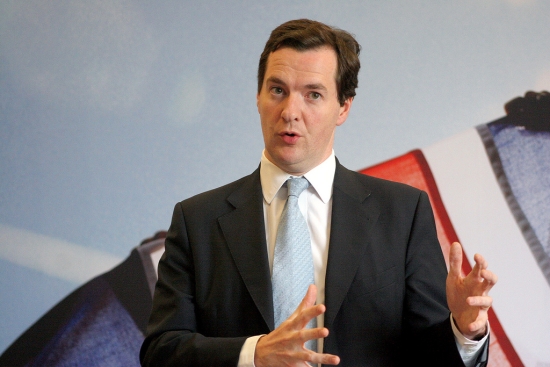It is no secret that the changing face of the retail industry together with continuing economic uncertainty has had a massive impact upon both independent and chain stores. A dramatic rise in the popularity of internet shopping and the administrations of several staples of the high street has effectively chased consumers away from town centres, while the rising cost of running a commercial property is further eroding any profit retailers have been able to make.

The BRC believes the Chancellor must do more to help struggling retailers
This is bad news for Britain, according to the British Retail Consortium (BRC), which states that “retailers make an essential contribution to investment, jobs and growth.” However, in order to maintain this social responsibility it believes that the Chancellor must do more to help struggling retail businesses in the upcoming Budget.
In an independent study by Oxford Economics, commissioned by the BRC, it is shown that the cost of remaining in business for retailers has shot up by a staggering 21 per cent since 2006. Then, the annual operating cost of the retail industry was £96 billion, yet in the latest data available it has increased by £20 billion to £116 billion annually.
Furthermore, sales values have increased by only 12 per cent on average during the same period – making the reason for numerous high street closures all too clear.
Largely to blame for this increased financial pressure on retailers are costs such as business rates and utility bills.
Director General of the BRC, Helen Dickinson, believes that the Chancellor could help retailers in the April Budget, building upon good foundations set down in the Autumn Statement.
She says; “Retail is a major force for good. It’s the UK’s largest private sector jobs provider and has been a powerhouse for investment and growth, even during the relentlessly tough times of the last few years.
“There were welcome measures in the Autumn Statement and the Chancellor has it within his gift to do a great deal more.
“Our figures show dramatic increases in operating costs, often as a direct result of Governmental decisions.”
The BRC has submitted the pre-Budget study to the Government as well as a number of recommendations as to how the Chancellor could best help struggling retailers. It believes that the most effective way the Budget can make a positive impact on the high street is by addressing the issue of low consumer confidence and reducing high business costs currently being placed upon retailers.
Several of the measures recommended to the Chancellor certainly seem highly achievable – for example, bringing in parking performance league tables immediately and improving the employment situation by introducing a time-limited National Insurance holiday for retailers who take on a young worker.
Some may have to be slightly longer term solutions, yet the Budget could certainly put steps in place to work towards them. Consumer confidence would be greatly impacted by the Government speeding up progress of the target £10,000 annual personal allowance.
Retailers, meanwhile, would greatly appreciate the freezing of business rates this April, with the next step being to implement a system which is fairer and more affordable. Basing increases on the annual average CPI, rather than the current measure of monthly RPI, would allow stores a little breathing room to meet their annual profit targets without their rates being skewed by seasonal profit booms around Christmas.
Ms Dickinson claims that, by assisting struggling businesses in the retail industry, the Chancellor would also be hastening the overall recovery of the British economy – a particularly effective argument given that the risk of triple dip recession is a very real concern at the present time.
She concludes; “Consumer spending accounts for two thirds of all expenditure in the UK.
“It must recover before the economy can, yet 2013 has begun with high-profile evidence that demand is weak and a painful restructuring of the UK retail industry is underway as consumers change the ways in which they want to shop.
“The Chancellor has the opportunity to improve the business environment as a way of re-establishing and maximising retail’s essential contribution to recovery. We’re setting out priorities to help achieve that most effectively.”
Previous Post
Shop Vacancy Rates Fall For First Time in Three Years